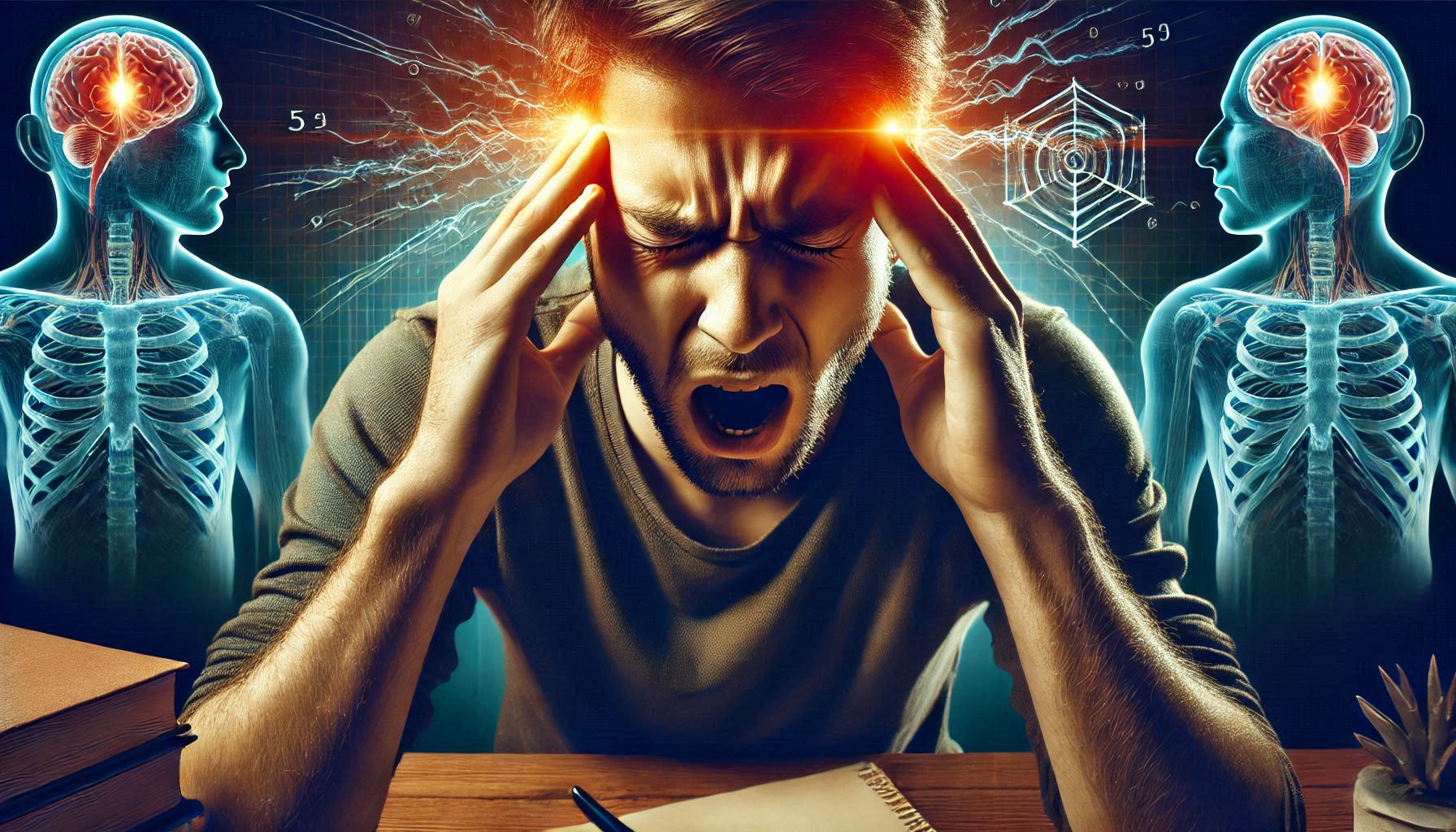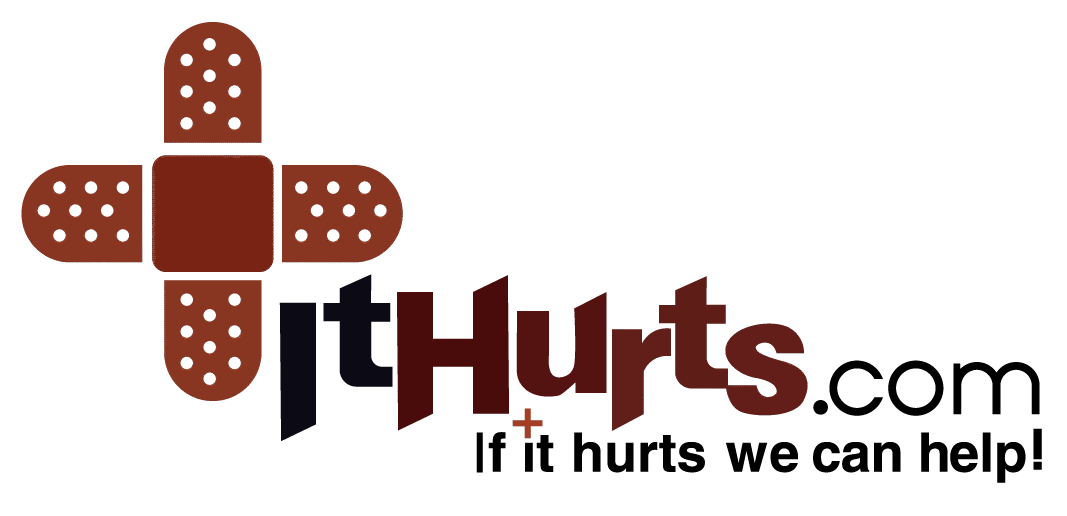Shopping Cart
CloseNo products in the cart.
Filter
closeMore Than a Headache: The Emotional Weight of Migraines and How to Cope
Author: ItHurts.com
A Comprehensive Talk on Headache and Migraines

Understanding the Basics:
Migraines are far more than just a headache—they are a complex neurological condition that can disrupt every aspect of life. For the millions of people who suffer from migraines, the physical pain is often just the tip of the iceberg. Beneath the surface lies a significant emotional toll that can strain mental health, relationships, and overall well-being. This article dives deep into the emotional impact of migraines and explores effective coping mechanisms to support mental health.
The Emotional Impact of Migraines
Migraines don’t just hurt your head—they affect your emotions, energy levels, and confidence. The unpredictable nature of migraines often leads to feelings of frustration, anxiety, and depression.
1. The Isolation Factor
Migraine sufferers frequently experience a sense of isolation. Missing work, canceling social plans, or withdrawing from family events can create a sense of disconnection. Friends and loved ones may not fully understand the intensity of migraine symptoms, leading to strained relationships.
2. Anxiety About the Next Attack
The unpredictability of migraines can be a source of constant stress. Many sufferers live in fear of the next attack, which can make planning for work, travel, or even daily errands feel overwhelming. This anticipatory anxiety compounds the emotional burden.
3. Depression and Hopelessness
Chronic migraines are linked to higher rates of depression. The debilitating nature of migraines can make individuals feel trapped, as if their condition controls every aspect of their lives. Over time, this can lead to a sense of hopelessness, particularly if treatments fail or progress is slow.
4. Loss of Identity
Living with migraines can challenge a person’s sense of self. Previously vibrant, active individuals may feel as though their condition has robbed them of the life they once knew. This loss of identity often leads to grief and a lowered sense of self-worth.
Understanding the Mind-Body Connection
Migraines are a physical condition, but their triggers and symptoms often intertwine with emotional health. Stress, anxiety, and depression are not only consequences of migraines but also potential triggers. Breaking this cycle requires addressing both the physical and emotional aspects of the condition.
Coping Mechanisms for Mental Health
While migraines are complex and can be challenging to manage, there are strategies to support your emotional well-being and regain a sense of control. Here are some practical ways to cope:
1. Build a Support Network
Feeling understood can be immensely healing. Reach out to family, friends, or online communities for support. Platforms like migraine-specific forums or local support groups can provide a safe space to share experiences and tips.
- Tip: Consider joining an online community like Migraine.com where you can connect with others who understand your challenges.
2. Practice Stress Management
Stress is one of the most common migraine triggers. Adopting stress-reduction techniques can help both your physical symptoms and emotional health.
- Meditation and Deep Breathing: Regular mindfulness meditation has been shown to lower stress levels and may even reduce the frequency of migraines. Apps like Calm or Headspace are great starting points.
- Progressive Muscle Relaxation (PMR): This technique involves tensing and relaxing different muscle groups to ease physical and emotional tension.
- Journaling: Writing about your feelings can help you process emotions and identify migraine triggers.
3. Therapy and Counseling
Cognitive Behavioral Therapy (CBT) is particularly effective for migraine sufferers dealing with anxiety and depression. Therapists can help you reframe negative thought patterns, build resilience, and develop personalized coping strategies.
- Tip: Look for therapists experienced in chronic illness or pain management to better address your unique needs.
4. Create a Migraine Toolkit
A migraine toolkit is a personalized collection of resources to help you manage attacks and their emotional aftermath.
- Essential Items: Include sunglasses, earplugs, ice packs, or any other tools that ease your symptoms.
- Self-Care Items: Add comforting items like a soft blanket, aromatherapy oils, or soothing music to create a calming environment.
- Emergency Medications: Work with your healthcare provider to ensure you have the right medications on hand.
5. Focus on Physical Health
Your physical health directly affects your emotional well-being. Incorporate healthy habits to reduce migraine frequency and improve your mood:
- Stay Active: Engage in gentle, migraine-friendly exercise like yoga or walking.
- Prioritize Sleep: Maintain a consistent sleep schedule, as disrupted sleep is a common trigger.
- Eat Mindfully: Avoid known food triggers and opt for a balanced diet rich in anti-inflammatory foods.
6. Educate Yourself and Others
Understanding migraines can empower you and help you communicate your needs to others. Share educational resources with loved ones to foster empathy and reduce misunderstandings.
Finding Hope: Stories of Resilience
Many migraine sufferers have found strength in their journey, transforming their struggles into opportunities for growth. These stories can inspire hope and remind you that you’re not alone.
- “I started a blog to raise awareness.” Some individuals channel their experiences into advocacy work, educating others about migraines and reducing stigma.
- “I learned to say no.” Setting boundaries has allowed many sufferers to prioritize their health without guilt.
- “I found a routine that works for me.” While no two migraines are alike, experimenting with different treatments and lifestyle changes can lead to a personalized management plan.
How Loved Ones Can Help
Support from family and friends can make a world of difference for migraine sufferers. Here’s how loved ones can help:
- Listen Without Judging: Avoid minimizing symptoms or offering unsolicited advice. Sometimes, simply listening is the best support.
- Educate Yourself: Learn about migraines to better understand what your loved one is going through.
- Offer Practical Help: Small acts like preparing a quiet space, running errands, or accompanying them to appointments can be invaluable.
When to Seek Professional Help
If migraines are taking a significant toll on your mental health, don’t hesitate to seek professional support. Signs that you may need help include:
- Persistent feelings of sadness or hopelessness
- Difficulty functioning at work or home
- Anxiety that interferes with daily life
- Thoughts of self-harm or harm to others
Reach out to a mental health professional or a trusted healthcare provider. Remember, seeking help is a sign of strength, not weakness.

Final Thoughts:
Migraines may be a formidable challenge, but they don’t have to define you. By acknowledging the emotional toll they take and implementing effective coping mechanisms, you can reclaim your life and find hope in the journey.
If you or someone you love is struggling with migraines, take the first step by reaching out for support, exploring treatment options, and prioritizing self-care. Each small step toward understanding and managing this condition is a step toward a brighter, more empowered future.
Call to Action
Have migraines impacted your mental health? Share your experiences and tips in the comments below, or join the discussion in our “MyPain” community on ItHurts.com. Together, we can build a network of understanding, support, and resilience.
ItHurts.com is your ally in your endeavor to live pain-free. We offer guidance, resources, and community support to address chronic pain, emotional stress, and physical discomfort. Discover insightful articles, product reviews, recommendations and shared experiences to empower your journey to better health. Remember, if it hurts, we can help!
Related Products
No posts found!
Related Blogs
No posts found!
